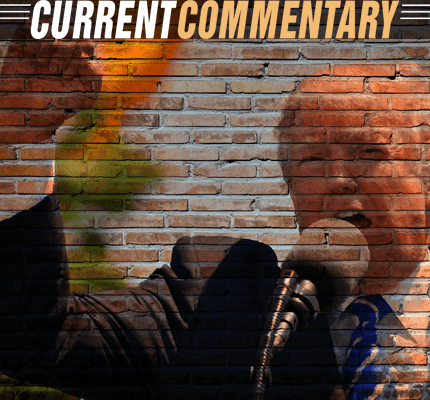
The Power of Language-in-Use
Academics are often accused of being politically vested. The image painted is that the majority of faculty have a liberal bias they openly preach to their students. Whether that is true or not (and I don’t think it is), it is clear that many scholars—including me—are not hesitant to express our political beliefs. Doing so, however, is neither sufficient nor effective. What is needed, I contend, is for academics to bracket our political leanings, instead using our disciplinary expertise to enlighten the public and move us beyond the usual political tis-taint games.
Let me try my hand at this. I am a professor of rhetorical studies at the University of Texas. I have spent my 40+-year career studying political language. I can say without fear of contradiction that Communication scholars know that messages do, indeed, matter. We also understand that rhetorical analyses often unearth important insights into the current political landscape that may not be possible via more traditional historical, journalistic, or political scientific accounts.
One case in point is President Donald Trump’s ongoing and accelerated response to the Russia investigation and attack on the investigators, as well as his apparent choice to make the case less about potential legal indictments by taking his claims directly to the court of public opinion, where the only issue is political (impeachment).
Let’s review the bidding. Since being elected President of the United States, perhaps well before, Donald Trump has been accused of having a track record of unethical behavior, racist discourse, and disregard for the truth. I am one who has advanced such allegations, referencing Washington Post stories that document the cumulative count of this record, as well as the work of Trump biographer Michael D'Antonio. It is hardly surprising, therefore, that many Americans and much of the mainstream media remain perplexed that Trump gets away with this behavior, wondering why the Republican-controlled Congress and the majority of Republicans refuse to rebuke him. For those of us who study communication, the answer is obvious and more rhetorical than ideological.
In his treatise “Rhetoric,” Aristotle wrote about “the available means of persuasion.” Say what you will about Trump’s incompetence and his despicable words and deeds. That may not matter when we have a president, perhaps more than any other in history, who understands that survival and success may depend not on facts, but on controlling what language infiltrates the public sphere and how that socially constructs reality for many citizens.
Several years ago, I published an article that introduced the concept of “language-in-use.” Using President Lyndon Johnson’s Gulf of Tonkin speeches and their dissemination by the media, which helped to rhetorically manufacture a crisis, I argued that ascertaining the effect of presidential discourse by analyzing public opinion poll data and votes may not always be the only or best metric.
Instead, I suggested we also need to know whether and how a president’s language is picked up and utilized by others, including the media. Drawing on the work of sociologists Peter Berger and Thomas Luckmann, as well as Karl Mannheim, my thesis was that a president’s use of language—his choice of carefully crafted code words and phrases—is both knowingly and unknowingly repeated and then internalized by others. This results in the acceptance of the president’s larger narratives and arguments. In addition, just like Aristotle’s enthymeme, repetition and dissemination of language can lead audiences to go one step further: filling in unspoken and missing premises, thus bolstering, extending, and amplifying a president’s message.
Trump is astute about the power of language-in-use (what he calls branding), and he has mastered the art of utilizing that power to circumvent facts and undermine truth. His repeated employment of phrases such as “witch hunt” and “spygate,” as well as his ability to turn the tables on current and former political foes by invoking narratives about their alleged wrongdoing, may be having an impact. Consider one of Trump’s most recent Tweets, presumably made to deflect attention from the visual horror of the “zero tolerance” policy: “Democrats are the problem. They don’t care about crime and want illegal immigrants, no matter how bad they may be, to pour into and infest our Country, like MS-13. They can’t win on their terrible policies, so they view them as potential voters!” When these words and themes are strategically repeated and then internalized by others, including Trump surrogates, the consequence seems to be an eroding of confidence in the eventual outcome of the Russia investigation. This language-in-use also makes it harder to build a case showing that Trump’s border policies and approach to immigration are harmful.
What concerns me is this: Until Trump’s critics understand this source of his influence, they may fall into a rhetorical trap, incapable of discerning the best available means of persuasion and hence actually helping the president by enabling him to escape accountability.
It’s time, therefore, for the public and media to avoid getting ensnared in the daily Trump soap opera. In fact, the public and the media must avoid the irresistible tendency to repeat the president’s language in an endless news loop. Given the research by scholars from a variety of disciplines, all that does is further reinforce Trump’s message—which of course is counterproductive. George Lakoff’s scholarship illustrates how one’s choice of “metaphors” and ways of “framing” an issue may alter what can be said and done in the future; it can both prescribe and proscribe future rhetoric and action. Similarly, Walter Fisher’s research underscores the strategic significance of “narrative”—how the manner in which a story is told influences and constrains future discourse and interpretations of reality. Consider as well Peter Berger and Thomas Luckmann’s social construction of reality theory—a view which documents not only how language impacts our perceptions of reality but also how such perceptions can actually become reality.
I contend that the more pertinent news would consist of exposing and detailing the underlying rhetorical significance of the deluge of Trump’s statements and tweets. For example, rather than focusing primarily on “what” Trump says, with the repeated claim that he is lying (which is true), the media and others should spend more time discussing “why” he may be saying what he does, or at least its effect, namely, to take our eyes off the end goal of preserving his presidency by circumventing truth and undermining our democratic values and institutions. Focusing attention on the “why” potentially could serve as an antidote to the harmful effects of Trump’s rhetoric—and one that increasingly must be told to the media and public not by pundits, but by scholars and less politically vested observers. And who better to do this than scholars in rhetoric!
I hope, therefore, that more Communication scholars will avoid the knee-jerk tendency simply to express the state of their political glands. Instead, we need to leverage our disciplinary knowledge to offer insights into the nation’s current political challenges.
References
- Berger, Peter L and Luckmann, Thomas. The Social Construction of Reality (New York: Anchor Books), 1966
- Cherwitz, Richard. "The Contributory Effect of Rhetorical Discourse: A Study of Language‑in‑Use." Quarterly Journal of Speech, 66 (1980), 33‑50.
- Cherwitz, Richard and Theobald-Osborne, John. "Contemporary Developments in Rhetorical Criticism: A Consideration of the Effects of Rhetoric." Studies I Honor of the 75th Anniversary of the Speech Communication Association. Gerald M. Phillips and Julia T. Wood, Eds. (Carbondale, Illinois: Southern Illinois University Press, 1989), pp. 52-80
- Fisher, Walter R. Human Communication as Narration: Toward a Philosophy of Reason, Value, and Action (Columbia: University of South Carolina Press), 1987.
- Lakoff, George and Johnson, Mark. Metaphors We Live By (Chicago: University of Chicago Press), 1980
- Mannheim, Karl. Ideology and Utopia: An Introduction to the Sociology of Knowledge (New York: Harvest Books), 1938
- Schutz, Alred. Phenomenology of the Social World (Evanston: Northwestern University Press), 1967
Media Experts
- Tom Hollihan, University of Southern California
- J. Michael Hogan, Penn State University
- Joshua Scacco, University of South Florida
- John Lucaites, Indiana University
- John Sloop, Vanderbilt University
- Debra Hawhee, Penn State University
- Craig Smith, California State University-Long Beach
- Kenneth Zagacki, North Carolina State University
- Thomas J. Darwin, University of Texas at Austin
- Vanessa Beasley, Vanderbilt University


